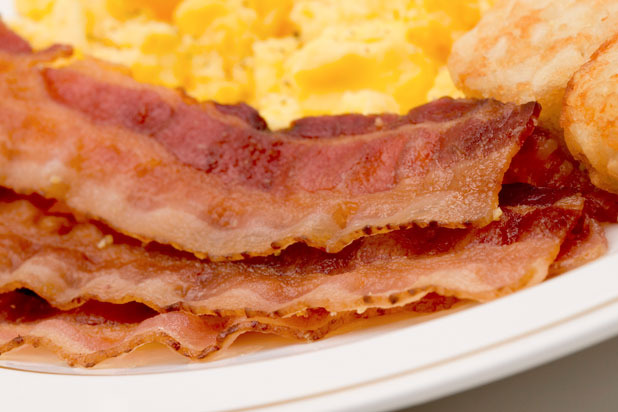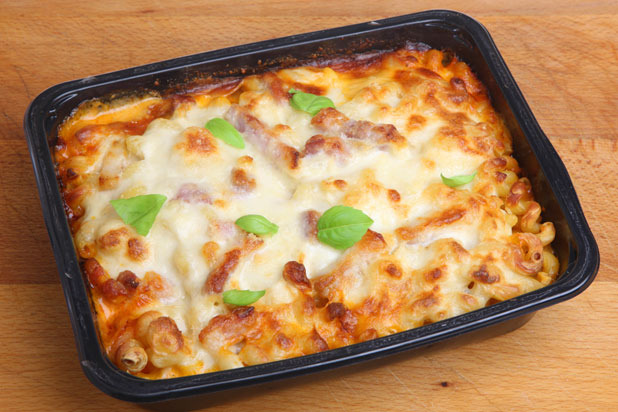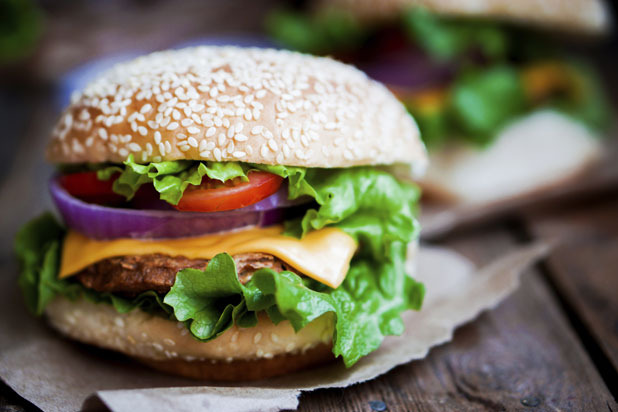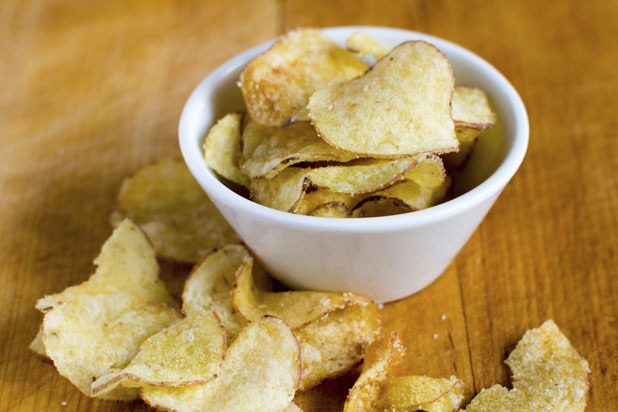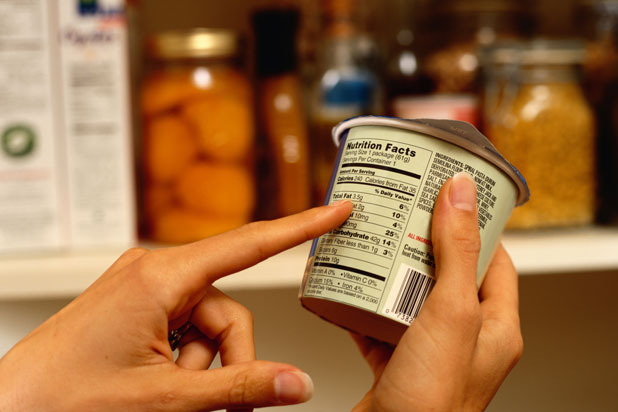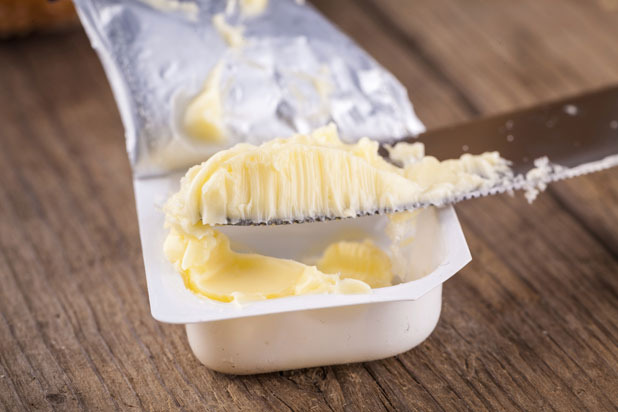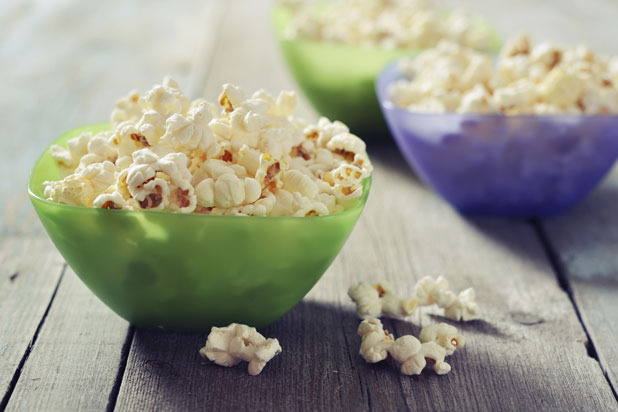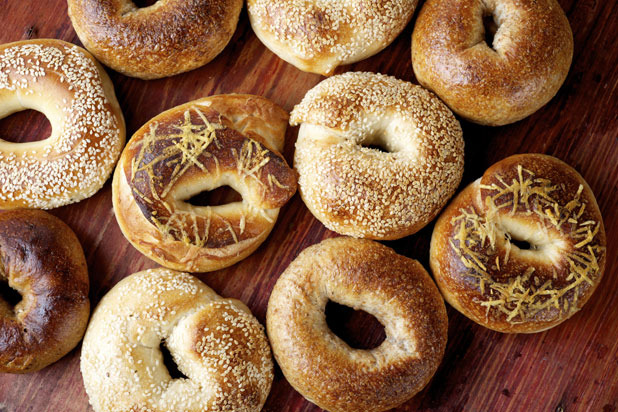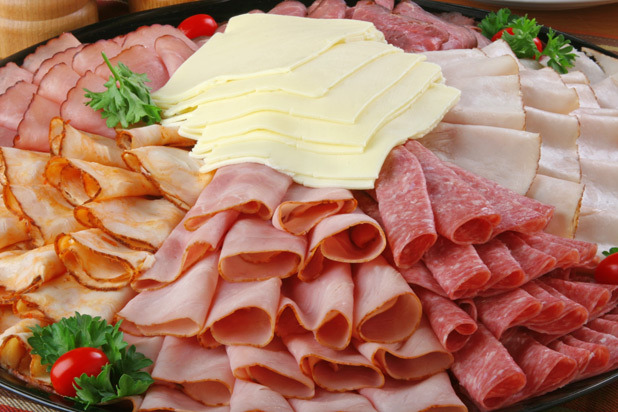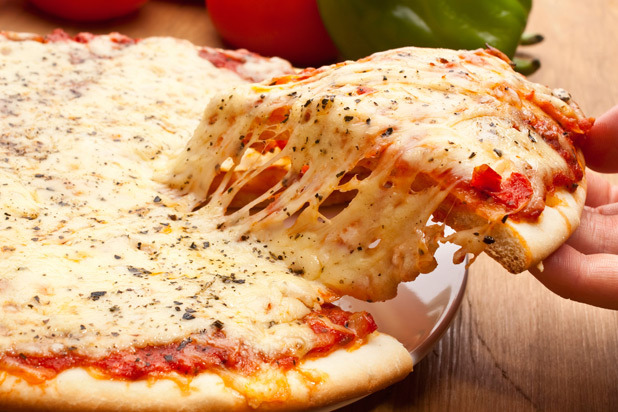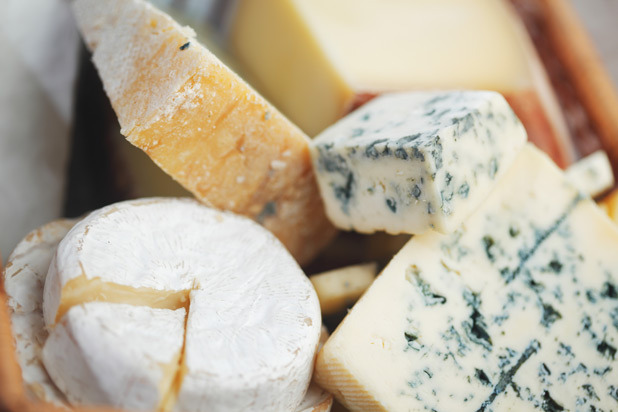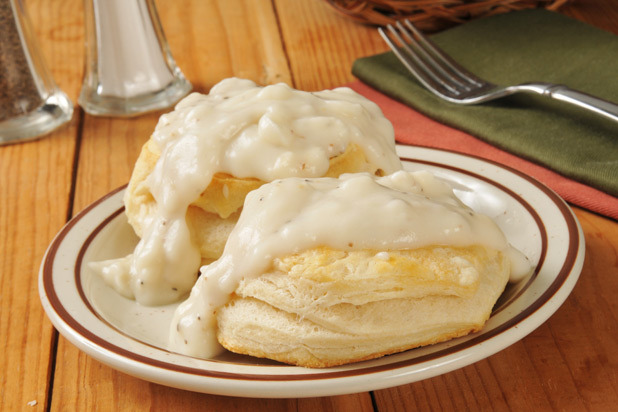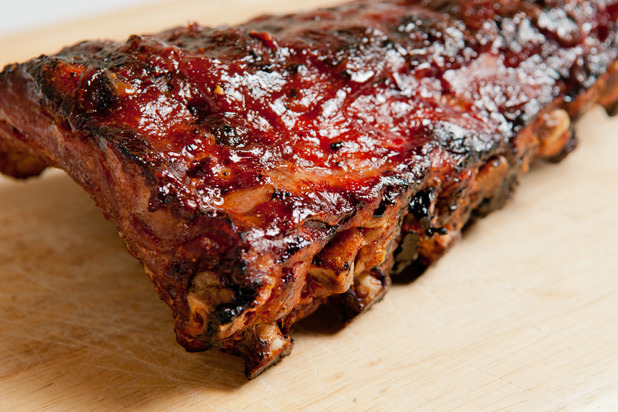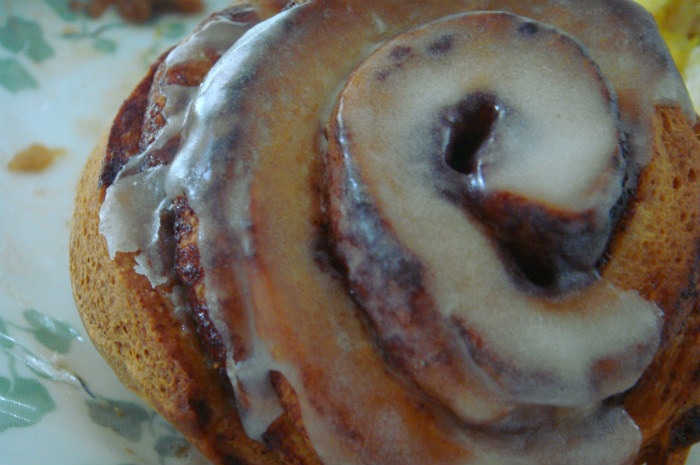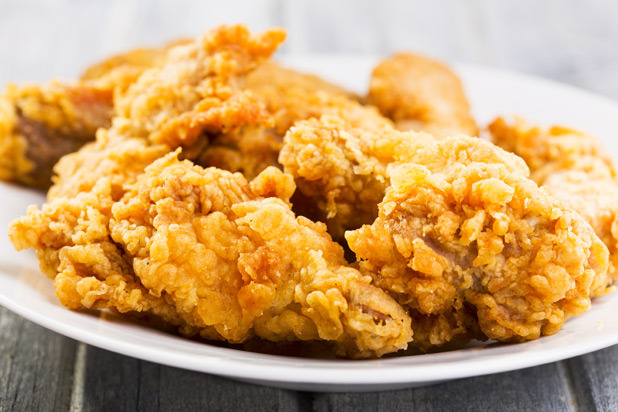The 20 Worst Things You Can Eat And Why (Slideshow)
Sausages (which includes everything from hot dogs to Slim Jims, bologna, and salami), by definition, are processed. When you process meat (which serves to keep it fresh longer, among other things) by smoking, curing, salting it, or preserving it via chemicals, you're loading it up with sodium, and the meat used usually also contains a ton of saturated fat, boosting the fat and cholesterol content into the stratosphere as well. Not only does sausage contain very little in the way of nutrients, excessive consumption has also been linked to colon cancer.
Bacon
Bacon may be one of the most delicious foods on earth, but it's also (unfortunately) horrible for you. Three slices of bacon contains about one-fifth of the suggested daily sodium allowance, but it's also cured using nitrates and smoke, which can contribute to increased chances of cancer and heart disease. Bacon is also fried in its own fat, which is full of saturated fat and cholesterol.
Frozen Dinners
TV dinners might be convenient, but very few have anything to offer in the way of nutritional value. They're also pumped full of fat, calories, and sodium in order to make something that's just been microwaved after sitting in a freezer for months palatable. Frozen dinners that are low in fat are also unhealthy, even though advertisements might tell you otherwise; they're still highly processed, and full of chemicals and sodium.
Burgers
The average restaurant burger contains upwards of 20 percent fat, which means that a full fifth of that patty is pure animal fat, full of cholesterol and other unhealthy components. Once you start adding cheese and bacon, you drive the fat content into the stratosphere. Also, a supermarket-bought patty can contain meat from hundreds of cows and if just one of them was sick, that can be transmitted to you if the meat isn't cooked through. Our advice: If you're going to eat a burger, make it a small one, make sure the fat content isn't higher than 15 percent, and cook it through unless you know it's from a reputable source.
Potato Chips
Potato chips are one of those foods that really have little to no nutritional value whatsoever. They're simply salted deep-fried starch, full of fat, calories, sodium, and carbohydrates. To top it off, potato chips contain acrylamide, a carcinogen that forms when food is fried at a high temperature.
“Diet” Foods
"Foods labeled fat-free or diet can often contain more sugar and chemicals than their full fat counterparts," nutritionist Keri Glassman told us. "They end up being less satisfying and are overconsumed."
Think of it this way: fat is flavor, so when the fat comes out, the flavor needs to be replaced somehow, with artificial fillers, chemicals, salt, and sugar. It's always healthier to eat real foods, even if they contain fat and calories, than their chemical-laden "diet" counterparts.
Margarine
There was a brief time when it was believed that margarine was healthier than butter, but that's gone out the window. The reason? Trans fats, quite possibly the worst thing you can put into your body. Trans fats raise bad cholesterol, increase your risk of heart disease and stroke, and even damage the walls of blood vessels. Use a healthier fat like olive oil, or just stick with a small amount of real butter.
Artificial Sweeteners
Sugar substitutes, like Equal, Splenda, and Sweet & Low, are pure chemicals: acesulfame potassium, saccharin, sucralose, aspartame, and neotame, to be exact. Because they're devoid of sugar and calories we tend to think we can consume as much of it as we want, but in many ways they're unhealthier than using real, natural sugar. The fact is that we really don't know just how much damage they're causing. Recent research indicates that excessive consumption of artificial sweeteners can result in cardiovascular disease, weight gain, Type 2 diabetes, and metabolic syndrome.
Popcorn
If you were to buy some popping corn, add a healthy oil and a sprinkling of salt, and pop it yourself, you'll be left with a healthy (if starchy) snack. But let's face it: nobody actually does that. Microwave popcorn is loaded with chemicals, from the ones lining the bag to make sure oil doesn't leak through to the others that prevent the bag from catching on fire. The popcorn itself is also usually coated in preservatives, salt, and partially hydrogenated oils (also known as trans fats) masquerading as butter, which is given its flavor via a chemical called diacetyl, which is toxic when inhaled. As for movie theater popcorn, it's one of the unhealthiest things you can eat, especially when topped with that liquid "butter" which is nothing but artificially flavored oil. Movie theater popcorn portions are also simply out of control.
Bagels
Bagels are made with refined white flour, which has had all of its nutritional value processed out of it, and they contain on average upwards of 400 calories. They're also extraordinarily dense, in some cases the equivalent of eating six slices of bread. Once you pile on the butter and cream cheese, you're headed straight for a mid-workday nap. If you must have a bagel, choose a mini-bagel, preferably one with whole grains, and scoop out the middle.
Deli Meats
Like sausages, deli meats are also processed, and you really wouldn't want to see what has to be done to an actual turkey breast in order to turn it into 'deli-style' turkey. It's basically liquefied, mixed with fillers and sodium, then re-formed, with the finished product devoid of just about any nutritional value. Stick with the real stuff instead.
Toaster pastries
Toaster pastries might be convenient, but they're also unhealthier than you might realize. The crust is made with white flour and unhealthy fats, and the filling is just pure sugar, with next to no actual fruit. Add icing and you're looking at upwards of 10 packets of sugar per two-pack! Now that's not a good way to start your day, is it?
Pizza
Anyone who's ever eaten a greasy slice of pizza knows that it's unhealthy, but the extent might surprise you. One slice of New York-style pizza can contain up to 500 calories and 10 grams of saturated fat, and the numbers get even higher if you make it deep-dish, which has a much-thicker crust which is usually made with butter. Once you start adding cholesterol-laden toppings like pepperoni and sausage, the unhealthiness factor gets out of control. If you need to eat pizza, stick to thin-crust, blot the oil off of it, and use the opportunity to load it up with vegetables.
Cheese
The biggest offender on that slice of pizza? The cheese. Cheese is incredibly dense, and is packed with solid milk fat, which is very high in cholesterol and calories. One average-sized cheese cube (the kind you might find in a toothpick at a cocktail party) can contain four grams of fat, more than half of it saturated. By the time you realize that you just downed 10 of them without even thinking about it, you've nearly maxed out your fat quota for the day.
Biscuits and Gravy
Yes, this might be a little specific, but a biscuit topped with cream gravy, usually flecked with chunks of sausage, is basically a heart attack waiting to happen. Biscuits are usually made with shortening in order to make them light and flaky, which is a major source of trans fat, and cream gravy is basically all fat: It starts with a roux (butter mixed 50/50 with refined flour and cooked), then milk or cream is added until it's diluted. Finally, chunks of fatty sausage are mixed in, and the whole mess gets ladled onto the biscuits. Cream gravy is also a common topping for country-fried steak, resulting in one of the unhealthiest foods man has ever produced.
Ice Cream
Ice cream, especially the super-dense premium varieties, is the worst of both worlds: It's heavy cream, which is full of cholesterol, mixed with boatloads of sugar (and other add-ons like brownies and cookies). While it might be tempting to down that whole pint, you might want to cut yourself off after a couple spoonfuls.
Ribs
The meat surrounding the ribs is among the fattiest you'll encounter, and while a little fat might drain off while it's cooking low and slow, most of it stays put. Meat fat is full of artery-clogging cholesterol and saturated fat, and because there's relatively little meat on the bones, it's pretty easy to burn through a whole rack. A full rack of baby back ribs can contain up to 75 grams of fat and 1500 calories, and a rack of fattier St. Louis-style ribs can contain nearly 100 grams of fat.
Packaged Cakes and Cookies
Few foods contain more trans fats than packaged sweet cakes and cookies. The reason? The addition of partially hydrogenated oils, which help keep the food shelf-stable and moist at the same time. Lots of preservatives are also added to prevent the fat from spoiling. It all amounts to nothing short of a "Frankenfood" that is devoid of just about anything that's natural. And that's before we even get to the sugar and fat content!
Cinnabon
Another specific food, but honestly these things are so unhealthy that they're in a class all by themselves. A Cinnabon Classic contains 880 calories and 36 grams of fat, 17 of which are saturated. By comparison, a Big Mac contains 550 calories and 29 grams of fat, 10 of which are saturated. Don't forget that this is a dessert, however, so there's nearly 60 grams of sugar, the equivalent of nearly two cans of Coke. How about an apple?
Deep-Fried Foods in General
The unhealthiest type of food you can eat, by far, is anything that's been deep-fried. Obviously, when you submerge food in fat in order to cook it, some of that fat soaks into the food, loading it up with fat and calories. Salty deep-fried foods are full of salt, and sugary deep-fried foods are also full of sugar; there's really no middle ground here. But besides the astronomic levels of fat, calories, and sodium or sugar, deep-fried foods are also extremely carcinogenic. According to recent studies, cooking foods at the high temperatures necessary for deep-fat frying caused toxic chemical compounds to form, which of course then get eaten. These compounds have been linked to several types of cancer. Deep-frying also causes foods to develop something called advanced glycation end-products, which has been linked to chronic inflammation.

